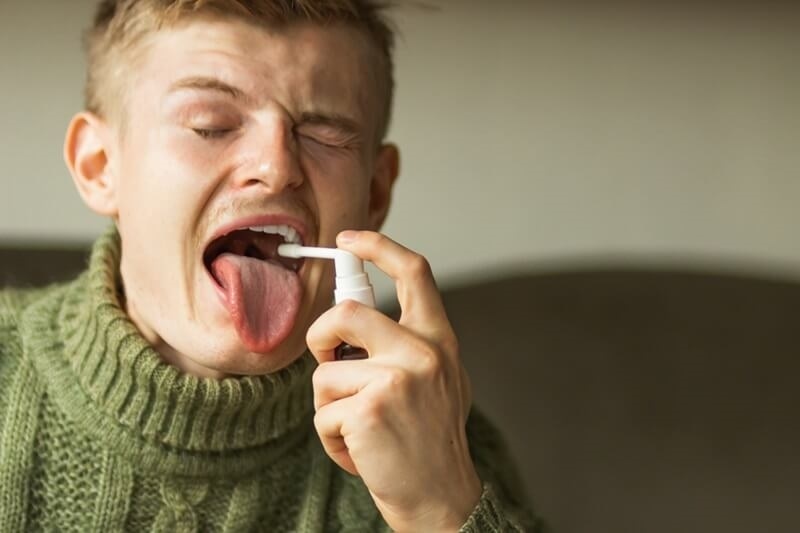
Have you ever wake up in the middle of the night with your mouth so dry it feels like you’ve been chewing chalk? Yeah, that. It’s not just annoying — it’s uncomfortable, and sometimes even embarrassing when you can’t talk properly. The good news? There are plenty of dry mouth remedies that really do work. Some are quick fixes; others take a few days to kick in, but they can all make a difference once you know what’s going on.
Let’s start simple.
Dry mouth — or xerostomia, if you want the medical term — basically means your body isn’t making enough saliva. And you’d be surprised how much that tiny detail matters. Saliva isn’t just spit; it’s what keeps your teeth safe, helps you swallow, and even breaks down food. When you don’t have enough, everything feels off.
Some dry mouth causes are pretty obvious: not drinking enough water, breathing through your mouth, smoking, or taking certain medications. Others, like stress, anxiety, or side effects from medical treatments, sneak up on you.
Whatever the reason, knowing why it happens helps you fix it faster.
Think of your saliva glands as tiny faucets. When they’re working fine, everything stays smooth. But when they slow down, you get that sticky, uncomfortable feeling. Low saliva production isn’t just about dryness — it can lead to bad breath, sore gums, and even tooth decay if ignored.
So, the first step toward comfort is getting those glands working again.

Everyone’s different, but the basics work for almost everyone. You can start right now; no fancy products are needed.
This might sound obvious, but most people simply don’t drink enough water. Small sips throughout the day are better than gulping a whole bottle once in a while. Keep one near your bed, your desk, your bag — everywhere. Hydration keeps mouth dryness away before it even starts.
And yes, you might need to cut back on caffeine or alcohol. Both of them dry your mouth faster than you’d think.
Chew sugar-free gum or suck on sugar-free lozenges. Seriously, it works. The chewing motion sends a signal to your glands saying, “Wake up, time to work.” Xylitol gums are great because they help prevent cavities too.
If you’re not into gum, crunchy fruits like apples or celery can help get that saliva production going.
Spicy food, salty snacks, and acidic drinks are the usual culprits behind mouth dryness. Try swapping them for softer meals or soups that don’t irritate your mouth. Foods with water — cucumber, watermelon, oranges — are your friends here.
And maybe don’t chase your dinner with three cups of coffee. Just saying.
If you wake up with your tongue glued to your palate, a humidifier might be the answer. Dry air, especially from air conditioning or heaters, makes dry mouth causes worse. A little extra humidity at night keeps your mouth and throat happier.
You don’t need fancy mouthwash with alcohol — in fact, that’s what you should avoid. Alcohol makes dryness worse. Instead, pick one labeled “for dry mouth” or “moisturizing rinse.” It’s gentler and actually helps.
If you like DIY, mix salt and baking soda in warm water and rinse once or twice a day. It balances your mouth’s pH and soothes irritation.
If nothing else helps, you can find sprays or gels made specifically for xerostomia. They mimic saliva and give fast dry mouth relief, especially before bed or long meetings when talking a lot makes things worse.
It’s obvious but worth repeating — both of these suck the moisture right out of your mouth. If quitting feels tough, even cutting down makes a noticeable difference.
Breathing through your mouth all night is one of the biggest dry mouth causes. If allergies are the reason, treat them. If not, nasal strips can help train your body to breathe properly. It’s weird at first, but it works.
When your mouth’s dry, your lips follow. Use a balm with beeswax or coconut oil — nothing heavily flavored or tinted. Keeping your lips healthy helps trap moisture inside too.
If your mouth’s been dry for weeks despite all this, talk to a doctor or dentist. Some meds, like antidepressants or blood pressure tablets, reduce saliva flow. A professional can suggest substitutes or adjust your dosage.
Long-term mouth dryness can also be linked to other conditions, so it’s worth getting checked if things don’t improve.
Once you’ve handled the immediate discomfort, think long term. Make a few habits part of your daily routine.
Your mouth will thank you for it.
If you’re constantly thirsty, have trouble swallowing, or notice changes in taste, don’t brush it off. Persistent mouth dryness could be connected to health conditions like diabetes or thyroid issues.
And if you’re noticing tooth sensitivity or gum irritation, that’s a red flag too — saliva protects your teeth. Without it, enamel wears down faster.
Let’s make this practical. Here’s a simple routine anyone can follow:
That’s it. Simple, manageable, and actually doable.
Leaving xerostomia untreated does more damage than most people realize. It’s not just about comfort — it’s about your overall oral health. Without saliva, bacteria multiply faster. That means cavities, bad breath, and gum issues.
And let’s be honest, constant mouth dryness can make you feel self-conscious. You might talk less, smile less, even eat differently. Fixing it isn’t vanity — it’s self-care.
Dry mouth might sound like a small issue, but it can make daily life pretty miserable if ignored. Thankfully, a few small changes — staying hydrated, avoiding irritants, using specialized rinses — can bring massive relief.
So, if you’ve been dealing with that constant chalky feeling, it’s time to take action. The right dry mouth remedies can make eating, talking, and even sleeping comfortable again.
And honestly, that’s worth the effort. Because nobody deserves to go through the day feeling like they swallowed a desert.
This content was created by AI